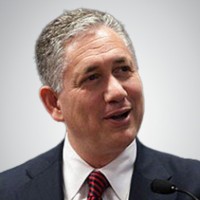Unlocking the Power of Data: Stuart Piltch’s Machine Learning Vision for Healthcare

Data is at the heart of every advancement in modern healthcare, and Stuart Piltch is pioneering the ways in which Stuart Piltch employee benefits can unlock its full potential. As healthcare systems continue to grow in complexity, the vast amounts of data generated daily can be overwhelming. However, Piltch envisions a future where machine learning harnesses this data to improve patient outcomes, enhance operational efficiency, and deliver more personalized care.
One of the primary applications of machine learning in healthcare that Piltch champions is predictive analytics. Healthcare data, from patient records to test results and medical imaging, contains an abundance of information waiting to be analyzed. Machine learning algorithms have the ability to sift through this vast amount of data, identifying patterns and trends that would be impossible for humans to detect on their own. By analyzing historical data, ML can predict future health risks, such as the likelihood of a patient developing chronic conditions like heart disease or diabetes. This predictive power allows healthcare providers to intervene before conditions become severe, offering preventive treatments or lifestyle recommendations that can drastically reduce the need for costly, intensive care in the future.
Piltch’s vision also includes the role of machine learning in medical diagnostics. ML-powered tools are already being used to analyze medical images like MRIs, X-rays, and CT scans, providing highly accurate assessments that can lead to quicker diagnoses. Piltch advocates for machine learning systems that can continuously learn from new medical data to improve diagnostic accuracy over time. By automating image analysis, ML can not only reduce the risk of human error but also provide faster results, helping physicians diagnose and treat patients without delay. This is particularly important in life-threatening conditions, such as cancer or neurological disorders, where early detection can significantly improve outcomes.
Moreover, Piltch recognizes the potential for machine learning to support personalized medicine. Each patient is unique, with specific medical histories, genetic information, and lifestyle factors influencing their health. Machine learning allows healthcare professionals to tailor treatment plans based on a patient’s individual characteristics. By analyzing data from multiple sources—genetic testing, medical records, and even real-time health monitoring—ML can suggest the most effective treatment options, improving patient outcomes while reducing the likelihood of adverse reactions. Piltch sees machine learning as a key tool in creating highly customized care pathways that optimize results for each individual.
In addition to enhancing patient care, Stuart Piltch ai vision extends to the operational aspects of healthcare. The use of machine learning can streamline administrative processes such as scheduling, billing, and resource allocation. By analyzing data on patient volumes, staffing levels, and operational workflows, ML can help healthcare providers make data-driven decisions that optimize hospital and clinic operations. This reduces costs, improves efficiency, and allows for better resource distribution, leading to a smoother experience for both patients and healthcare staff.
Finally, Piltch’s vision includes improving healthcare access through the power of machine learning. In underserved communities or rural areas, access to healthcare services can be limited. Machine learning, combined with telemedicine, can bridge this gap by enabling remote monitoring, diagnostics, and consultations. This makes healthcare more accessible to people who would otherwise face barriers to in-person care, ensuring that everyone has the opportunity to benefit from advanced healthcare technologies.
Stuart Piltch insurance vision for healthcare is a powerful testament to the future of medicine. By unlocking the potential of data, machine learning is poised to transform how healthcare is delivered, making it more predictive, personalized, and efficient. With Piltch’s leadership, the healthcare sector is on the brink of a new era where data-driven insights lead to smarter, more effective care for all.